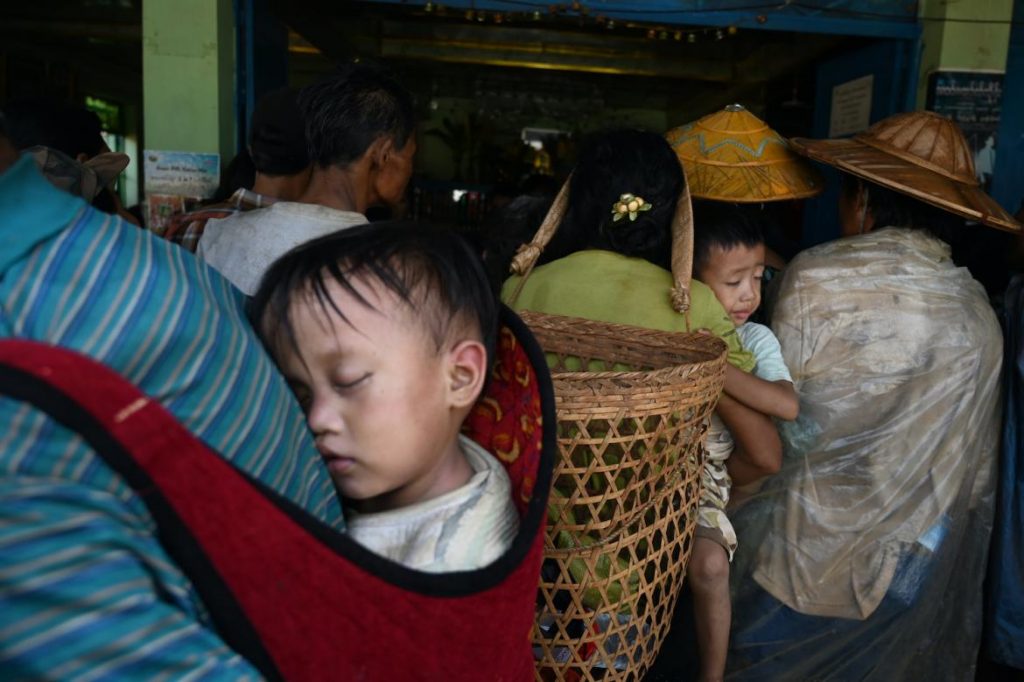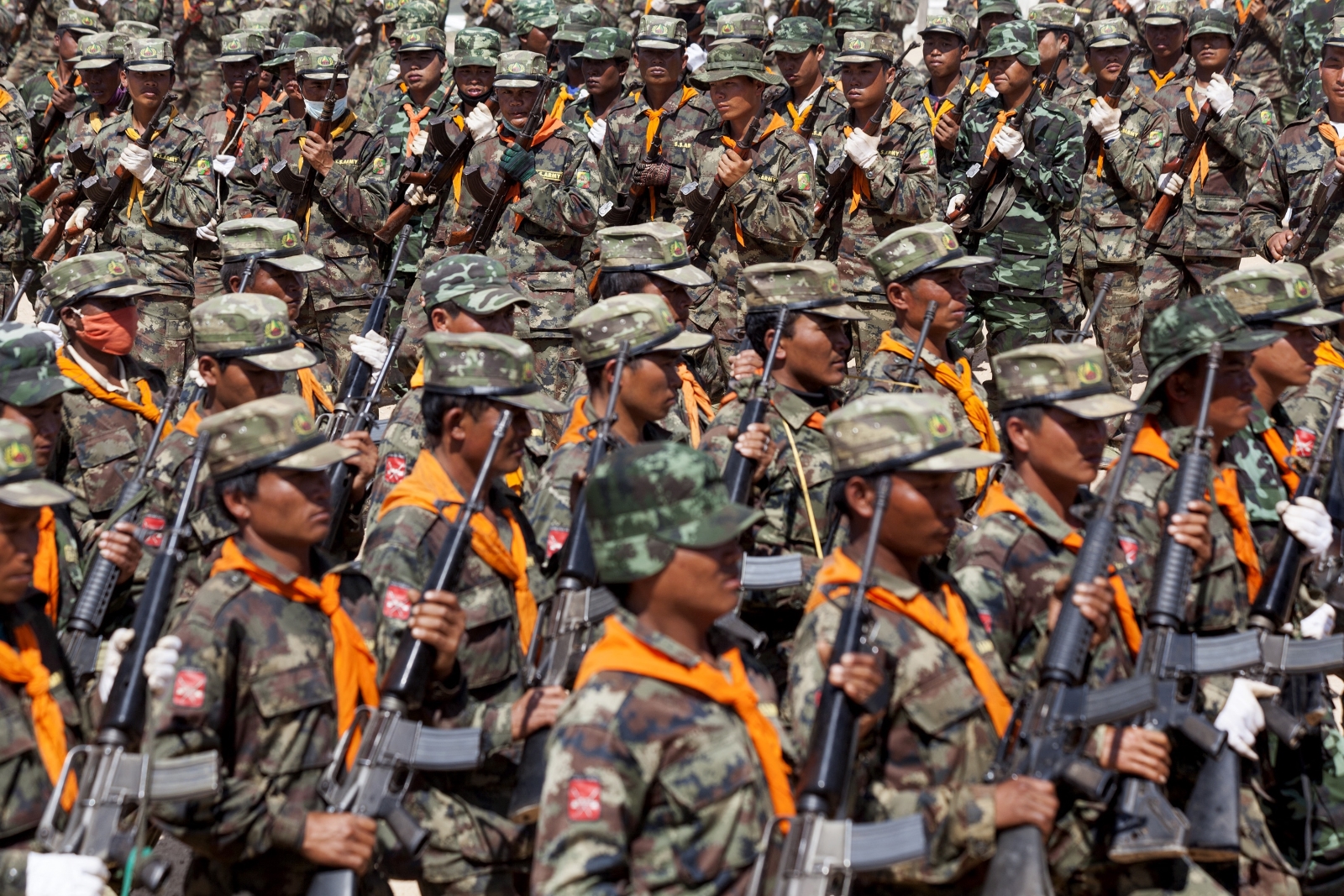By GEOFFREY GODDARD | FRONTIER
YANGON — The United Nations Security Council must refer the situation in Myanmar to the International Criminal Court, says global rights watchdog Amnesty International in a report that focuses on violations and abuses linked to fighting in northern Shan State.
The Security Council has for too long stood by as civilians are abandoned to a ceaseless cycle of violence, Amnesty says in the report, “Caught in the Middle: Abuses against civilians amid conflict in Myanmar’s northern Shan State”. The 44-page report was released on October 24 and covers the period since mid-2018, when fighting escalated in northern Shan after ethnic armed groups launched a series of attacks amid a unilateral Tatmadaw ceasefire that has since lapsed.
The report says both the Tatmadaw and ethnic armed groups have committed violations of international humanitarian law and human rights abuses.
Amnesty says many of the violations on the Tatmadaw side were committed by the 99th Light Infantry Division, units of which were implicated in atrocities in northern Rakhine State during the military’s “clearance operation” that followed attacks by the Arakan Rohingya Salvation Army in August 2017 and sent more than 740,000 Rohingya fleeing to Bangladesh.
Support more independent journalism like this. Sign up to be a Frontier member.
“The fact that less than 18 months after these crimes, soldiers of the same division were committing new violations – including crimes under international law – highlights once again the need for the international community to take action and ensure that those responsible do not continue to enjoy immunity from their crimes,” it says.
“Specifically, the UN Security Council must fulfil its responsibility and refer the situation in Myanmar to the International Criminal Court. Given the renewed military operations in northern Shan State, and reports of further violations against civilians, the Security Council should act not only to ensure accountability for past crimes, but to try to prevent further abuse as consistent with its mandate,” it says.
“The Myanmar military is as relentless and ruthless as ever, committing war crimes against civilians in northern Shan State with absolute impunity,” said Mr Nicholas Bequelin, Amnesty International’s director for East and Southeast Asia. “Soldiers – and more importantly commanders – are subjecting civilians to the military’s hallmark brutality in the absence of any form of accountability.”
The report says civilians caught between the Tatmadaw and different ethnic armed groups in northern Shan “risk a catalogue of abuses by both sides”.
Amnesty said that during two research trips to northern Shan in March and August this year, it interviewed 88 people, who included victims and direct witnesses to violations of international human rights and humanitarian law.
It said it wrote to the National League for Democracy government, the Tatmadaw, and four ethnic armed groups – the Ta’ang National Liberation Army, Shan State Army-South, Shan State Army-North, and Kachin Independence Army – to discuss its research but no responses were received by the time of publication.
The research found that the Tatmadaw subjects civilians to arbitrary detention, often arresting men and boys on the basis of their ethnic identity and a perceived link to a particular armed group.
“As is the case in other conflict-affected areas of Myanmar, arrests and detentions were often accompanied by torture and other ill-treatment. Soldiers beat, kicked, and punched detainees in order to obtain information about ethnic groups, or else to force detainees to ‘confess’ to being members of such groups,” the report says. In some cases detainees were taken to military bases where they were held for up to three months, it said. Detainees were usually held in incommunicado detention.
The research also found that the military has fired indiscriminately in civilian areas, killing and injuring civilians and damaging homes and other property. Tatmadaw troops also regularly moved through – and sometimes stay in – villages, exposing civilians to the risk of attack. Amnesty documented cases where the military used schools as bases and barracks, and in one instance, as a detention and interrogation site.
“There is evidence that ethnic armed groups also commit abuses against civilians, in particular in areas where there has been intense fighting among armed groups during the military ceasefire,” the report says.
The ceasefire was declared unilaterally by the Tatmadaw in northern and eastern Myanmar on December 21, 2018. It lapsed following an escalation in the fighting after a series of daring operations by the Brotherhood Alliance of three ethnic armed groups on August 15, 2019. The alliance comprises the TNLA, Arakan Army and the Kokang-based Myanmar National Democratic Alliance Army.
The report says fighters from ethnic armed groups have abducted civilians – usually men – or otherwise deprived them of their liberty, usually accusing them of supporting a rival group. Civilians were often beaten to obtain information about other groups.
“Continuing a practice which has been well-documented by Amnesty International and others, ethnic armed groups have also subjected civilians to forced labour, including forcing them to act as guides,” it says.
Ethnic armed groups also remain engaged in widespread “taxation” and extortion, demanding money and food from villages and businesses. “The regularity with which these are demanded leaves no doubt that the practice is sanctioned at the most senior levels. In an area with limited livelihood opportunities and where conflict has raged for more than eight years, such ‘taxes’ have a deeply detrimental impact on people’s livelihoods,” Amnesty says.
The report says there has been an “alarming increase” in the number of civilians killed or injured by landmines, improvised explosive devices, or other explosive remnants of war. The fighting has also resulted in the repeated displacement of civilians, the irregular but continual nature of which posed challenges for humanitarian groups working to provide aid and assistance.
“These new and ongoing violations take place against the backdrop of a floundering national peace process. Despite promising to make peace and national reconciliation a priority, the NLD-led government has failed to make progress in negotiating an end to the country’s decades-long conflicts. Government failures to make meaningful political concessions coupled with ongoing military offensives have fostered deep mistrust among ethnic armed groups. As the 2020 elections draw near, the military is unlikely to allow the government any ‘successes’ to present to voters,” Amnesty says.
Amnesty called on all sides to respect international humanitarian and human rights law, protect civilians, and ensure humanitarian access. Armed groups must end acts of violence and intimidation against civilians and take all feasible measures to avoid civilian-populated areas.
“Those responsible for war crimes should face justice, all the way up to Senior General Min Aung Hlaing, the Myanmar military’s Commander-in-Chief,” said Bequelin. “Fighters and commanders in ethnic armed groups should also be investigated and held accountable for war crimes.”







